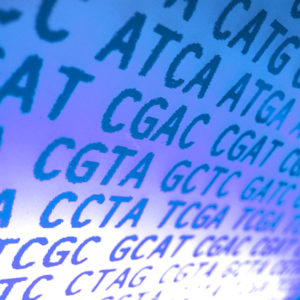Next Generation Sequencing Bioinformatics (Remote Classrooms - Africa)
13 April–10 June 2021
Virtual remote classrooms
Learn how to analyse NGS data using the latest bioinformatics tools and resources
Summary
In collaboration with H3ABionet, we are pleased to announce our new 2021 Next Generation Sequencing Bioinformtics Africa course.
This course will apply a blended learning format consisting of locally coordinated classrooms referred to as “remote classrooms”. Click here for more information. Please note: Due to the COVID-19 pandemic, the local classrooms for this course will run virtually, using Zoom and downloadable virtual machines.
Next generation sequencing (NGS) has become an essential tool in genetic and genomic analysis. It is increasingly important for experimental scientists to gain the bioinformatics skills required to analyse the large volumes of data produced by next generation sequencers. This course will equip participants with the essential informatics skills required to begin analysing NGS data and apply some of the most commonly used tools and resources for sequence data analysis.
The programme will cover prominent sequencing technologies, algorithmic theory and principles of bioinformatics, with a strong focus on practical computational sessions using sequence analysis techniques and tools applicable to any species or genome size. A variety of applications will be covered from post-sequencing analysis – QC, alignment, assembly, variant calling, RNA-Seq and ChIP-Seq.
Time commitment: Contact sessions will run on Tuesdays and Thursdays lasting for 4 hours per session.
Target audience: The course is aimed at postdoctoral scientists, senior PhD students, junior faculty members or clinicians/healthcare professionals based in Africa who are actively engaged in or soon to commence research involving next generation sequencing data analysis.
Please note: The practical sessions will be taught exclusively through Unix/Linux. Therefore, participants are required to have some previous experience using the Linux operating system. This will be essential for participants to fully benefit from the course. There are numerous online introductory tutorials to the UNIX/Linux operating system and command line, including:
http://www.ee.surrey.ac.uk/Teaching/Unix
http://swcarpentry.github.io/shell-novice/
Programme
The course will run for 8 weeks on Tuesdays and Thursdays (4 hours per session) from the 13th of April until the 10th of June 2021
The programme will cover the following topics:
• Intro to Unix/Linux & running workflows
• Introduction to NGS Technologies
• NGS data pre-processing and QC
• Alignment to reference sequences
• Variant calling and annotation
• ChIP-Seq
• RNA-Seq
• Genome assembly
Learning outcomes
On completion of the course, participants should expect to be able to:
• Use the unix command-line as a tool for data analysis
• Describe the different NGS data file formats available
• Perform QC assessment of high throughput sequencing data
• Explain the algorithmic concepts behind read alignment, variant calling and structural variant detection
• Perform read alignment, variant calling and structural variation detection using standard tools
• Analyse RNA-Seq and ChIP-seq data
• Perform a genome assembly using NGS data
Course instructors
Course instructors
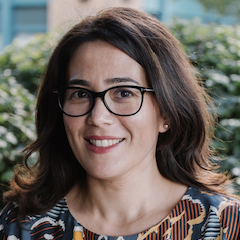
Amel Ghouila
Bill & Melinda Gates Foundation, USA
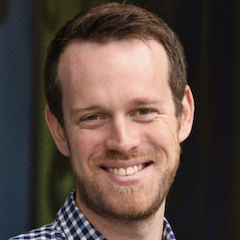
Eugene Gardner
Wellcome Sanger Institute, UK
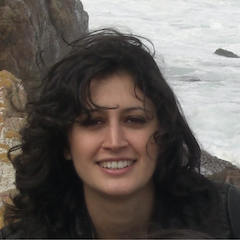
Fatma Guerfali
Institut Pasteur de Tunis, Tunisia
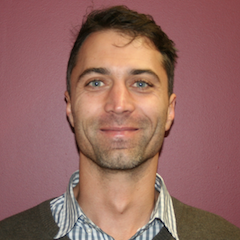
Gerrit Botha
University of Cape Town, South Africa
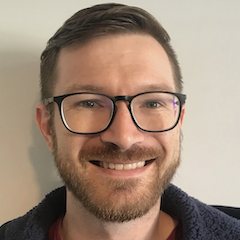
Jon Ambler
University of Cape Town, South Africa
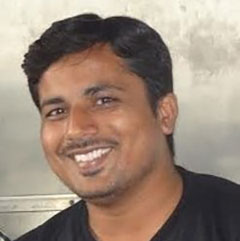
Narender Kumar
Wellcome Sanger Institute, UK

Nyasha Chambwe
St. Jude Children's Research Hospital, USA

Petr Daněček
Wellcome Sanger Institute, UK

Phelelani Mpangase
University of the Witwatersrand, South Africa
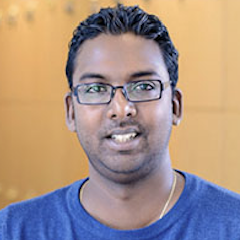
Shaun Aron
University of the Witwatersrand, South Africa
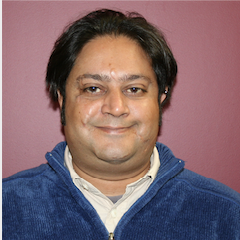
Sumir Panji
University of Cape Town, South Africa

Vivek Iyer
Wellcome Sanger Institute, UK
How to apply
Prerequisites:
The course is aimed at postdoctoral scientists, senior PhD students, junior faculty members or clinicians/healthcare professionals based in Africa who are actively engaged in or soon to commence research involving next generation sequencing data analysis.
Priority will be given to applicants who:
1) currently or will soon have NGS experimental data to analyse
2) will utilise the bioinformatics techniques taught in at least two of the modules/topic areas listed in the programme outline in their experiments
3) have a clear plan/opportunity to disseminate the knowledge amongst their peers. We encourage applicants to highlight these areas in their application.
The practical sessions will be taught exclusively through Unix/Linux. Therefore, participants are required to have some previous experience using the Linux operating system. This will be essential for participants to fully benefit from the course. There are numerous online introductory tutorials to the UNIX/Linux operating system and command line, including:
To apply to one of the host classrooms and participate on the course, please use the Apply button above. Applications must be received by 22 February 2021.
Classroom hosts
| Name of institution: | Hosting country: |
| Botswana Harvard AIDS Institute | Botswana |
| Nazi BONI Univrsity | Burkina Faso |
| King Black Foundation | Cameroon |
| Bioinformatics & Biostatistics Hub, Biotechnology Center, University of Yaoundé I | Cameroon |
| Suez Canal Univerity | Egypt |
| MASRI-Medical Ain Shams Research Institute | Egypt |
| Zagazig univesity “ECBAG” | Egypt |
| Hawassa University | Ethiopia |
| Armauer Hansen Research Institute | Ethiopia |
| Noguchi Memorial Institute for Medical Research | Ghana |
| International Center of Insect Physiology and Ecology (icipe) | Kenya |
| Moi University | Kenya |
| African Center of Excellence in Bioinformatics, Univ of Bamako | Mali |
| University Nouakchott al-asriya | Mauritania |
| University of Mauritius | Mauritius |
| National School of Applied Sciences | Morocco |
| Institut Pasteur du Maroc (IPM) | Morocco |
| University Mohammed VI of Health Sciences | Morocco |
| Covenant University | Nigeria |
| Centre for Advanced Medical Research and Training (CAMRET), Usmanu Danfodiyo University Sokoto | Nigeria |
| Fountain University Osogbo | Nigeria |
| National Biotechnology Development Agency | Nigeria |
| University of the Witwatersrand | South Africa |
| University of the Free State | South Africa |
| National University Biomedical Research Institute | Sudan |
| Centre for Bioinforatics & Systems Biology, University of Khartoum (CBSB, UofK) | Sudan |
| IEND | Sudan |
| Institut Pasteur de Tunis | Tunisia |
| African Center of Excellence in Bioinformatics and Data-Intensive Sciences, Makerere University | Uganda |
| Uganda Virus Research Institute | Uganda |
